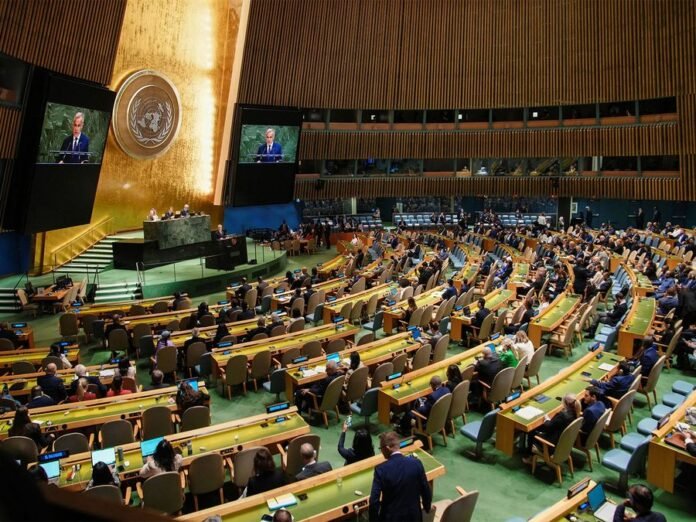World leaders are heading to New York this week for the 80th United Nations General Assembly, where talks will likely focus heavily on the ongoing conflicts in Gaza and Ukraine. The annual event kicked off on September 9, and the high-level general debate starts Tuesday at UN headquarters in Manhattan.
By long-standing tradition, Brazil opens the speaking lineup, with the United States following as the host nation. This practice goes back to the UN’s early days, when countries hesitated to go first—Brazil stepped up every time, according to the UN’s protocol chief. Brazil has held this spot since the 10th session in 1955, and after the US, a special algorithm sets the order for everyone else.
The gathering arrives amid rising global tensions. Leaders will tackle Israel’s military actions in Gaza and Russia’s war in Ukraine during speeches and side meetings. On Monday, France and Saudi Arabia led a push to gain support for recognizing a Palestinian state, even though the US and Israel strongly oppose it. The US stands alone among permanent UN Security Council members in not recognizing Palestine.
Palestinian President Mahmoud Abbas, blocked from getting a US visa, will speak to the assembly via video. Israeli Prime Minister Benjamin Netanyahu plans to address the group on Friday.
Ukrainian President Volodymyr Zelensky showed up in New York on Monday and will join the debate plus one-on-one talks with other leaders.
US President Trump will deliver a major keynote speech, with First Lady Melania Trump by his side. His busy schedule includes meetings with other heads of state, group discussions, and closing remarks at the UN Leaders Reception.
Not everyone is coming personally, though. Russian President Vladimir Putin skips the event for a second year straight—his Foreign Minister Sergei Lavrov heads the delegation. China sends Premier Li Qiang instead of President Xi Jinping, and Indian Prime Minister Narendra Modi tapped External Affairs Minister S. Jaishankar to represent India.
Jaishankar had a packed day too. He met US Secretary of State Marco Rubio to boost ties in trade, defense, energy, and critical minerals. Jaishankar also chatted with EU foreign ministers at an informal gathering, covering topics like multilateralism, the India-EU partnership, the Ukraine conflict, Gaza, energy, and trade. Plus, he linked up with US Ambassador-designate to India Sergio Gor to strengthen US-India relations.
In a big milestone, Syrian President Ahmed al-Sharaa is traveling to New York to speak—marking the first time a Syrian leader has done so since 1967. Iranian President Masoud Pezeshkian joins the debate as Iran pauses work with the International Atomic Energy Agency after UN sanctions. Qatar’s Emir Sheikh Tamim bin Hamad Al-Thani attends too, right after recent Israeli strikes on Doha.
This year’s theme, “Better together: 80 years and more for peace, development and human rights,” pushes for unity in a divided world. Annalena Baerbock, Germany’s former foreign minister and president of the 80th session, calls it a make-or-break time for global teamwork. “To preserve what the UN has achieved since 1945. To renew our United Nations. To make us, the UN, fit for the future, fit for purpose,” she said, ending with “Better Together!”
The assembly will show if the UN, born from the ashes of World War II, can still bring nations together amid today’s overlapping crises like wars, climate challenges, and geopolitical rifts.
Stay informed on all the latest news, real-time breaking news updates, and follow all the important headlines in world News on Latest NewsX. Follow us on social media Facebook, Twitter(X), Gettr and subscribe our Youtube Channel.



